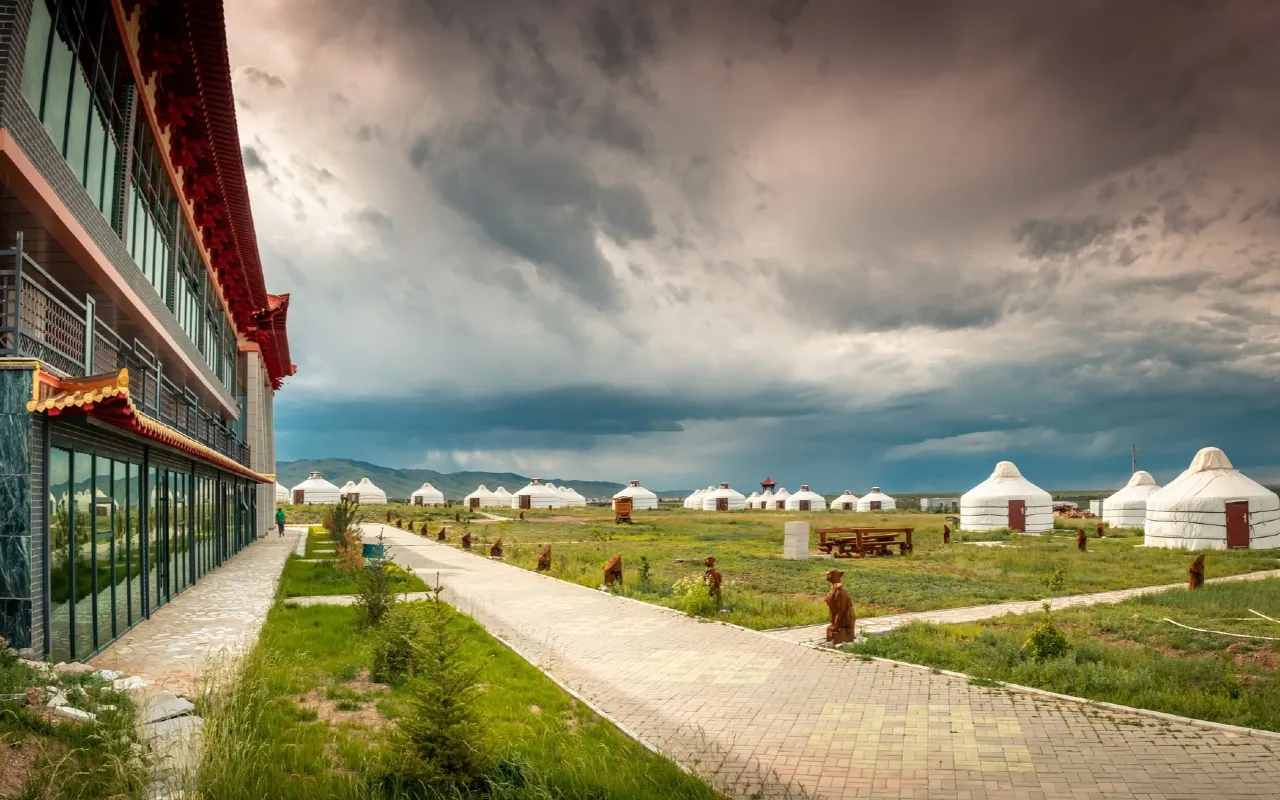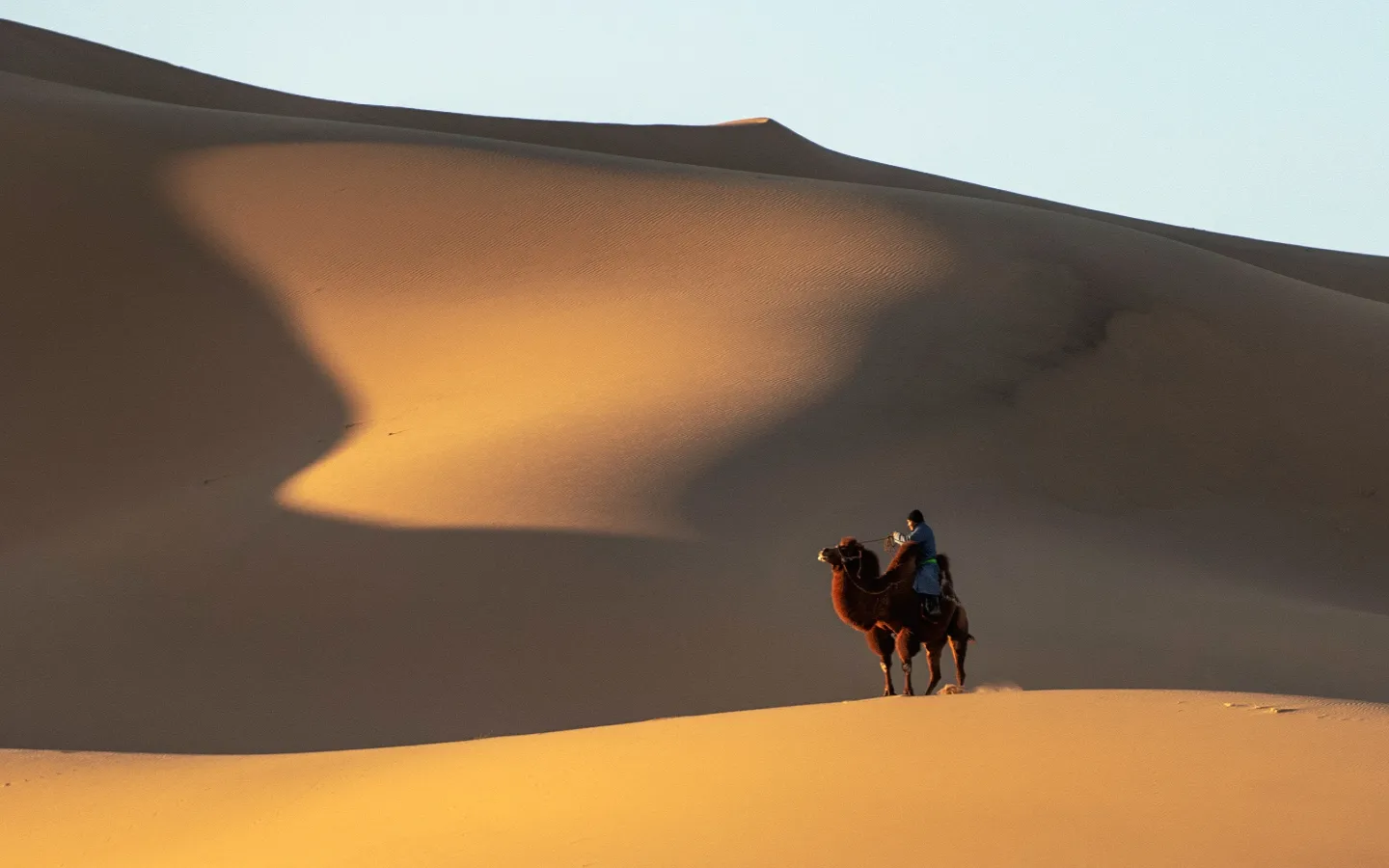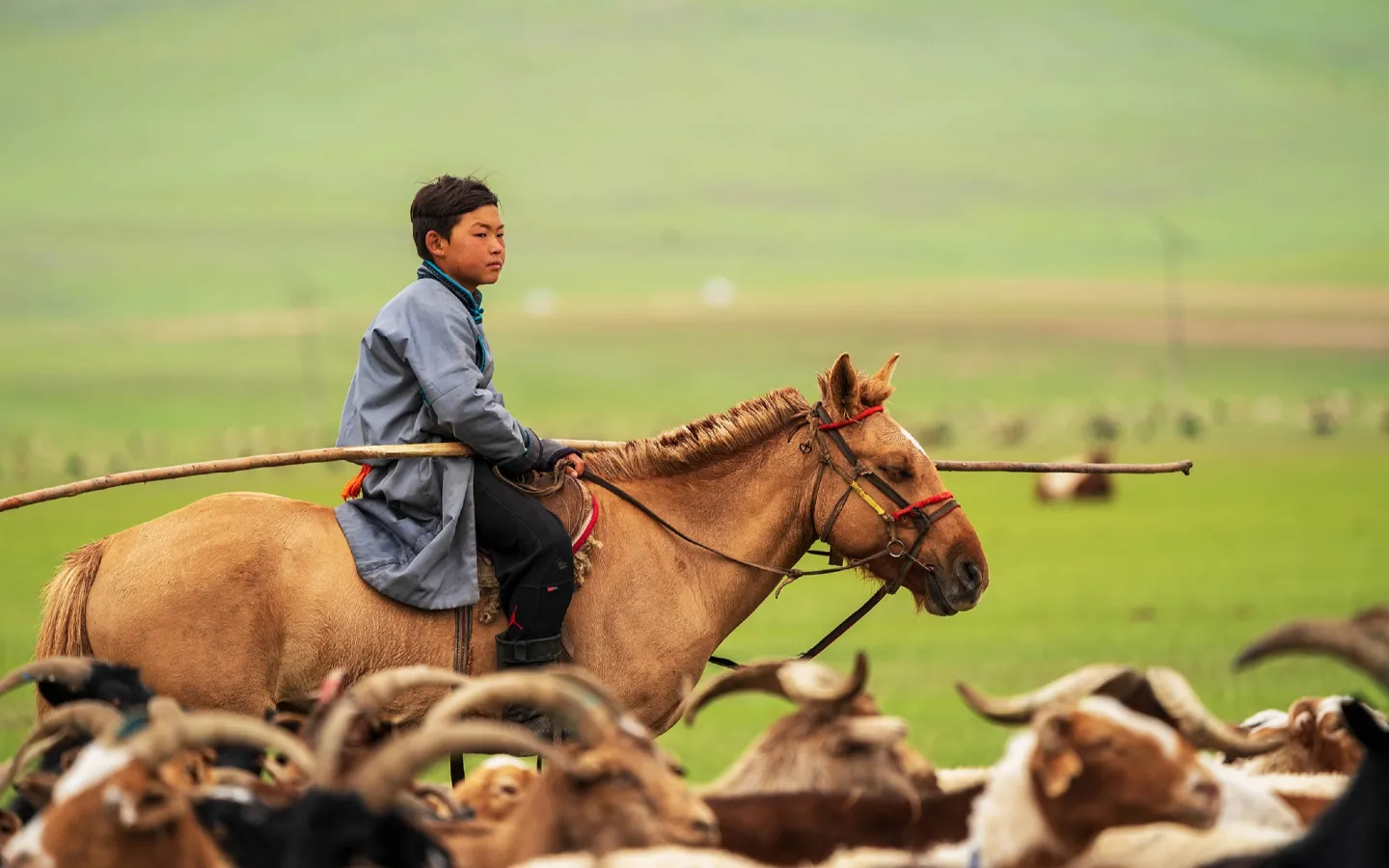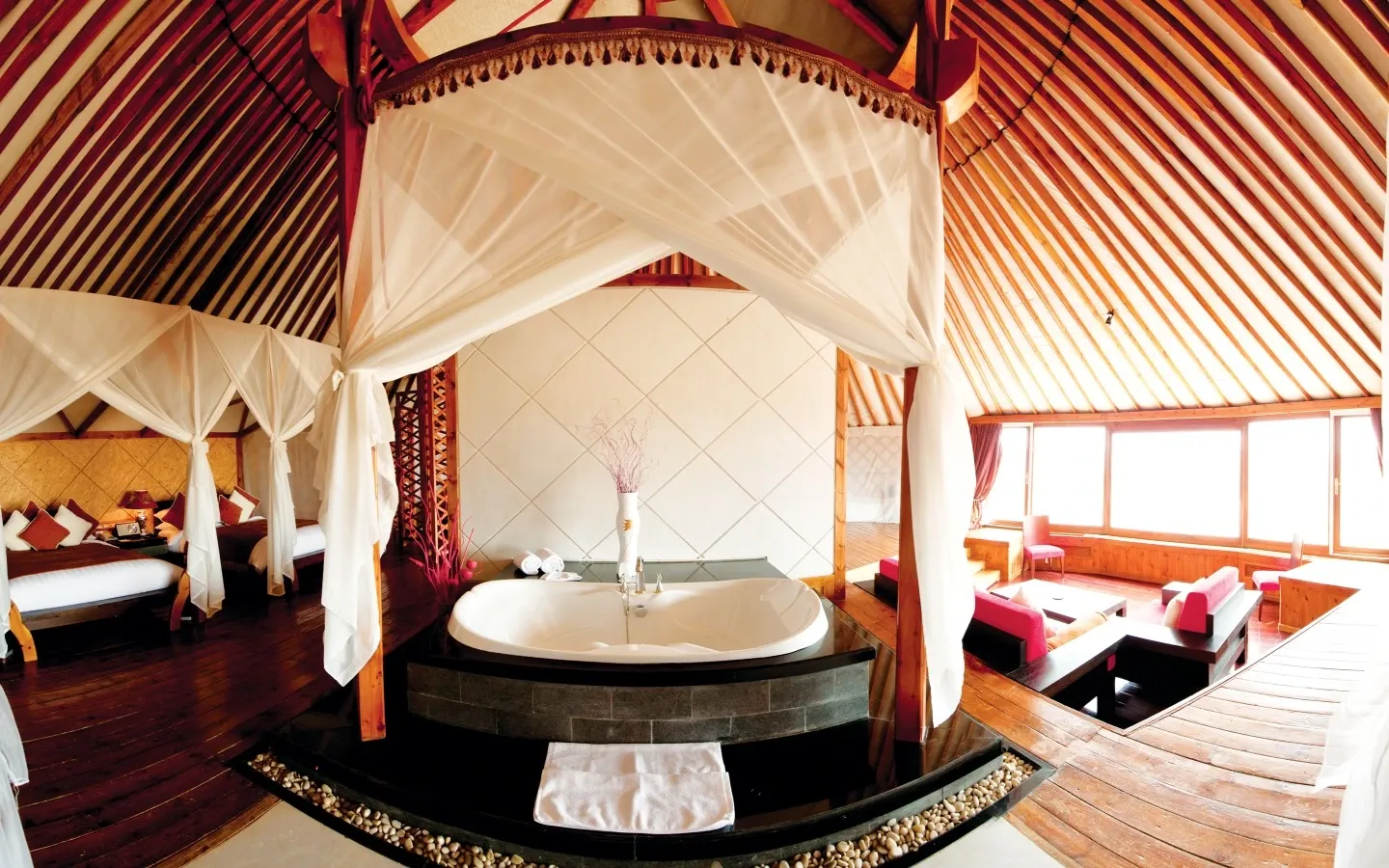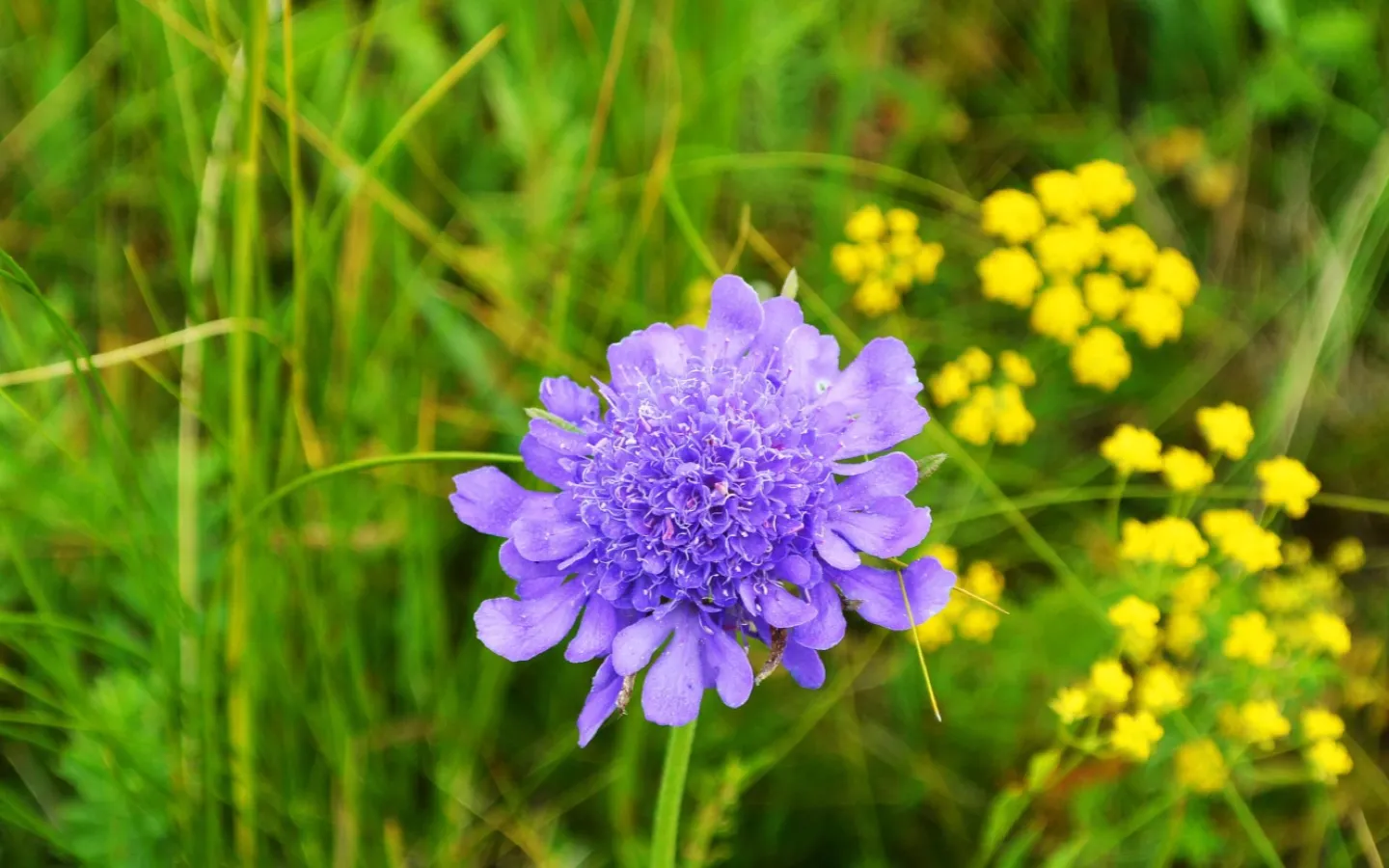This morning, visit the Erdene Zuu Monastery and take part in the morning chants, and the Open Air relic gallery of the 13th century shrine of the Khaans. Transfer to a nomadic family and enjoy a cooking class and see their lifestyle: dairy making, sheep herding, horse training, Airag making (seasonal) and so on.
In the early evening take some walking to the Turtle Stone memorials and the Phallic stone. Return to the lodge, have dinner and rest.
Karakorum is the ancient capital of the Mongol Empire; whose ruins lie on the upper Orhon River in north-central Mongolia. The site of Karakorum may have been first settled about 750. In 1220 Genghis Khan, the great Mongol conqueror, established his headquarters there and used it as a base for his invasion of China. In 1267 the capital was moved to Khanbaliq (modern Beijing) by Kublai Khan, greatest of the successors of Genghis Khan and founder of the Mongol Yüan dynasty (1206–1368) in China. In 1235 Genghis Khan’s son and successor, Ögödei, surrounded Karakorum with walls and built a rectangular palace supported by 64 wooden columns standing on granite bases. Many brick buildings, 12 shamanistic shrines, and two mosques were once part of the city, which also was an early centre for sculpture, especially noteworthy for its great stone tortoises.
After the fall of Mongol Yuan Dynasty in Beijing, the Mongol royals were back to Karakorum. And in the 1400s Chinese Ming soldiers burnt Karakorum twice. Later in the 1500s the city was partially rebuilt but was subsequently abandoned. However, in 1586 a Mongol prince started building Erdene Zuu monastery, which today remains only as a museum, was built on the city site. In 1889 the precise location of Karakorum was discovered by two Russian Orientalists working in the area, and in 1948–49 the ruins were explored by members of the Academy of Sciences of the U.S.S.R. Among their discoveries were the site of Ögödei’s palace (in the southwestern part of the city) and the remains of a late 12th- or early 13th-century Buddhist shrine.*
Accommodation: Silk Road Lodge (en-suite Gers)
Meals: B, L, D**


